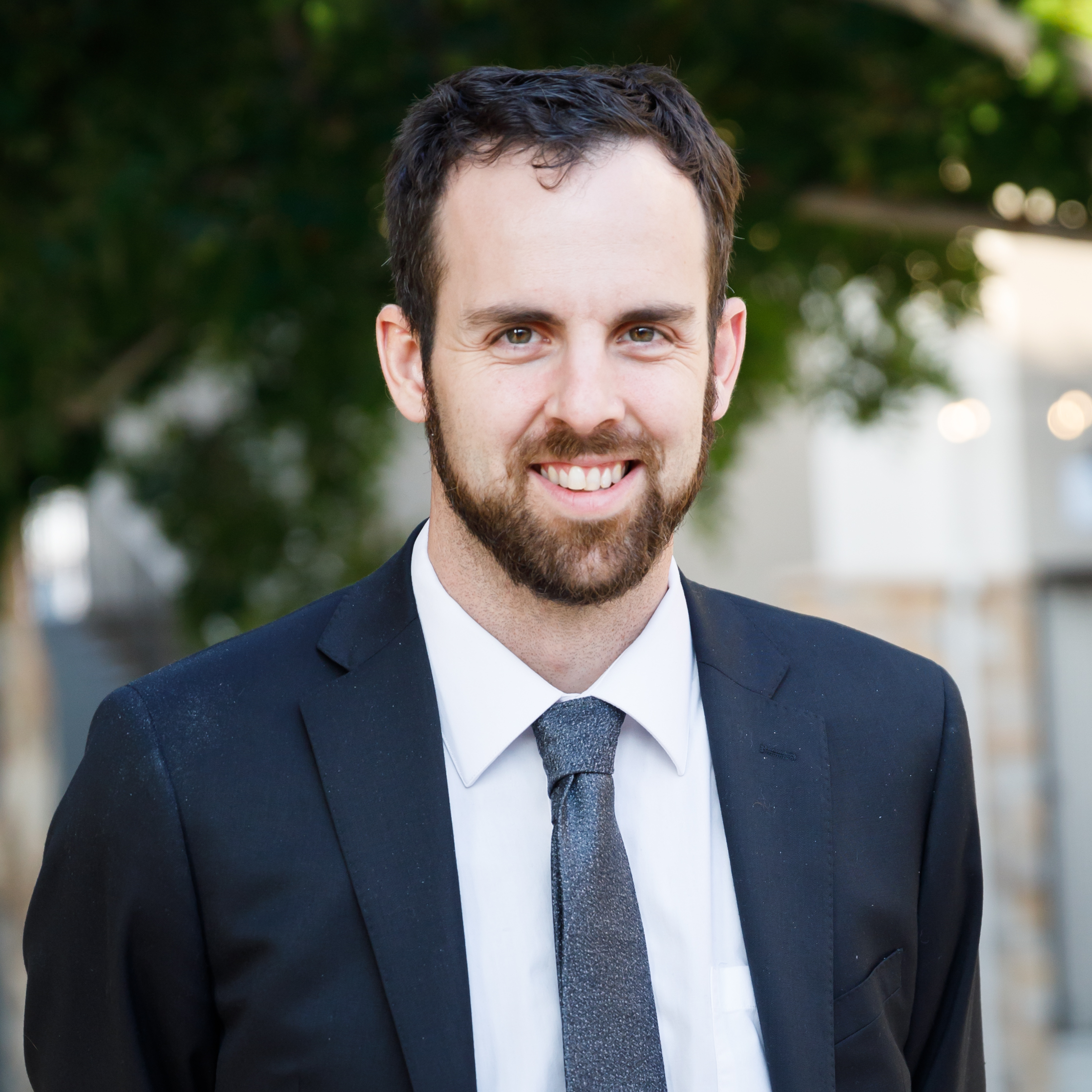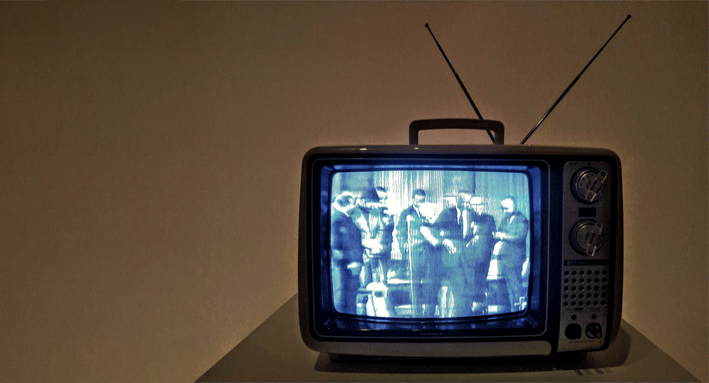As Hurricane Milton approached Florida in the middle of October 2024, a college acquaintance of mine logged on to social media and suggested that the storm’s path wasn’t random. He implied that the government had manufactured the storm and steered it toward Florida because the state was led by a Republican governor and was almost certain to vote Republican in the upcoming presidential election.
This wasn’t the first time this acquaintance had promoted a conspiracy theory. He seems to believe that a secret society of secular, liberal elites is controlling the government, the economy, and, potentially, the weather. He blames everything, from the political defeats of his preferred candidate to the path of a Category 5 hurricane, on this secret society.
For me, the most fascinating and instructive part of each of this man’s social media posts isn’t the theory he’s espousing that day. It’s the accusation he often makes as he wraps up these posts. It typically goes something like this: “Christian, you need to wake up. If you can’t see this, you’re not paying attention.”
My focus isn’t the validity of this theory. I don’t want to debate whether the American government can control the weather (though I want to make it clear that I don’t believe it can). Neither is this post a critique of other conspiracy theories. I’m not interested in figuring out if a second gunman, hidden on a grassy knoll in Dallas, killed JFK, or revisiting Galileo’s theory that the earth is round. What I am interested in is my friend’s confrontational statement—“Christian, you’re not paying attention and you need to wake up”—because I find a version of it to be prevalent among my fellow evangelical Christians.
Millions of believers—particularly in America—assume that as followers of Christ they have the responsibility to be aware of injustice and wickedness, particularly when it is hidden, and expose that perversion, particularly on social media. Said another way, Christians must investigate evil and fight it because the carryout of justice is in our hands. I’m convinced that these are unwise assumptions. I don’t believe God wants us to live with these assumptions and the paranoia that often comes with them because that will cultivate a faulty understanding of reality and cause us to pursue priorities that should not occupy followers of Christ.
I want to help Christians answer the questions these conspiracies pose: do I need to wake up? Do I need to get woke about the reality of a secret society pulling the strings of our lives, stealing elections, and controlling the weather? And does Scripture have anything to say about what my friend is suggesting? Said another way, does the Bible have any guidance for us as we try to figure out what to believe, and not believe, when we are told that reality is not what it seems?
Though the Bible isn’t going to tell me whether a secret society exists in 21st-century America, or if the technology to control the weather has been invented, it has five principles I lean on when I encounter conspiracy theories and am told I need to wake up to what’s really going on in this world.
Principle #1 — The world is under “the sway of the wicked one” (1 John 5:19b).
Much of this world rejects the lordship of Christ. That seems to be particularly true of most celebrities and politicians—men and women who are part of the cultural elite. By default, those who reject Christ’s lordship belong to the Devil. Ephesians 2:2 articulates this reality clearly. Speaking of believers before they embraced Christ, Paul says, “In which you once walked according to the course of this world, according to the prince of the power of the air, of the spirit that is now working in the sons of disobedience.”
No matter your income level, your access to power, your intelligence, or your influence, if you reject Christ, you are enslaved to sin and the Devil who is the Father of Lies. Keep reading Ephesians 2 and you find out what a life lived in submission to the Devil looks like. “Among them we too all previously lived in the lusts of our flesh, indulging the desires of the flesh and of the mind, and were by nature children of wrath, just as the rest” (Eph 2:3). The key word here is live. It speaks of the perpetual state of nonbeliever’s lusts of the flesh. It’s on full display. That’s abundantly evident in the words and actions of so many famous people who reject Christ. They openly celebrate murdering babies as well as rejecting God’s design for gender and marriage.
Many in positions of power and influence in our culture make it abundantly clear that they despise God’s design for human flourishing, and they revel in lives of self-indulgence and hate. The elites are not hiding their wickedness. They are celebrating it proudly. That being the case, we often don’t have to work hard to discern where the Devil is at work, deceiving nonbelievers and, if possible, deceiving the elect (Matt 24:24). We can see his work in any idea that rejects God, diminishes Christ, and attacks his created order. And sadly, those ideas are all over our culture. Of course, there are times when nonbelievers do hide their true intentions, but because they are owned by the Devil, most of the time they revel in unrighteousness. In fact, they celebrate it and believe it is righteousness, as Romans 1 says.
Principle #2 — Love does not assume the worst.
In his magisterial description of love in 1 Corinthians 13, the apostle Paul says love “believes all things [and] hopes all things.” This could be interpreted to mean that love does not assume the worst.
Without confession or evidence, we need to make it our aim not to assume nefarious or evil intentions, particularly among believers, but also in our relationships with nonbelievers.
If we live convinced that everyone is hiding secret sin or operating behind closed doors with the evilest of intentions, we are in danger of becoming incapable of carrying out our Lord’s second great commandment: to love our neighbors as ourselves (Mark 12:33).
In December of 2016, one man’s decision to assume the worst was nearly deadly for some innocent patrons at a pizza parlor near Washington D.C. Thankfully, no one was injured when Edgar Welch walked into Comet Ping Pong and fired three rounds from his AK-47 style rifle. Edgar was there because he’d read online that Comet was the epicenter of a child trafficking operation. These online publications claimed there were codes embedded in emails from Hillary Clinton and other politicians that pointed to Comet, among other restaurants, as the places where powerful people exchanged children. Because Edgar assumed the worst, he had come to the restaurant thinking he was going to rescue children. Ironically, he was endangering the lives of children dining at Comet that December night.
Obviously, Edgar is to blame for this mishap. He should not have believed everything he read on the internet. But those slandering Comet online are also to blame. They assumed the worst and, because they did, they caused great damage. The same is true of anyone who slanders another because they assume the worst.
Again, I want to make clear, there very well could be a hideous child-trafficking ring operating in our country. And it wouldn’t surprise me if powerful people—including well-known politicians—were part of it. But it is wrong to assume, without evidence, that a particular person or persons are involved. And I don’t have the time or expertise to investigate and gather the evidence needed to definitively say who might be part of such a ring and who is not. The Bible tells us not to believe a charge without the testimony of two or three witnesses. Let’s be careful not to assume the worst, and then believe those who do the same based on hearsay, presumption, or a penchant for slander and gossip.
Principle #3 — As a follower of Christ, I shouldn’t “concern myself with great matters, nor with things too profound for me” (Ps 131:1).
In his helpful book You’re Only Human, Kelly Kapic explores the doctrine of finitude, or the biblical truth that human beings have God-given limitations. We are not omnipresent or omniscient. The internet is designed to push back against human finitude, particularly the idea that there are limits to what we can and should know. Because we can google any piece of information immediately, we can assume we should know everything that’s ever happened or is currently happening. And because the internet is full of so much information, we can falsely assume that everything said on the Internet is true. That’s obviously not the case.
The reality is that humans are limited in how much they can investigate and understand beyond their embodied circumstances. We must remember our finitude when we encounter theories on the internet that we do not have the time or the capacity to investigate. It is an act of humility to say, “That may be true, but I can’t know it.” As Psalm 131 makes clear, there are lots of realities in our world that are too great for our feeble minds. This goes beyond the doctrine of election versus human responsibility. We are not designed to know everything about everything.
Might there be a secret society out there, disrupting the world? Maybe. But there are limits to how much I can know about this, and there is also the fact that God hasn’t called me to investigate these matters. He’s called me to faithfulness in my church, with my family, and throughout my community.
Far more important is your love of neighbor and your personal integrity, which you can influence, than the potential evil of men and women you read about on the internet, with whom you can have little to no influence.
Principle #4 – The Great Commission trumps political activism and cultural engagement.
Because the church is an assembly of finite human beings, it is limited in what it can accomplish. It must say no to certain endeavors in order to stay on message and fulfill its God-given calling. Of course, that calling is best articulated in Matthew 28:18–20: “And Jesus came up and spoke to them, saying, ‘All authority in heaven and on earth has been given to Me. Go, therefore, and make disciples of all the nations, baptizing them in the name of the Father and the Son and the Holy Spirit, teaching them to follow all that I commanded you; and behold, I am with you always, to the end of the age.’”
Let’s connect Jesus’s words with Hebrews 12:1–2: “Therefore, since we also have such a great cloud of witnesses surrounding us, let’s rid ourselves of every obstacle and the sin which so easily entangles us, and let’s run with endurance the race that is set before us, looking only at Jesus, the originator and perfecter of the faith, who for the joy set before Him endured the cross, despising the shame, and has sat down at the right hand of the throne of God.”
Matthew 28 gives us the mission and shows us what it looks like to follow Jesus. Hebrews 12 urges us to shed any and all distractions and encumbrances that keep us from following Christ. In other words, don’t get distracted by a lesser mission than the Great Commission. I think cleaning up the culture and figuring out where the secret society is meeting falls into the category of a distraction. Christians must be known for following Christ—proclaiming him boldly and without compromise. That must be our priority.
If we clean up the culture to the neglect of proclaiming Christ, we’ve done nothing but cause men to die in a little less sin.
Principle #5 – Justice is coming.
When faced with the possibility of injustice, whether that’s confirmed injustice such as abortion, or potential injustice in the form of a secret society that pushes wickedness into this world, our first response should be: “Come, Lord Jesus!” One day, perhaps soon, Jesus will right all wrongs, judge the wicked, and set up his throne to rule in justice and righteousness. Until then, we need to be wary of any movement, or conspiracy theorist, who tells us it’s our responsibility to "wake up," understand what’s going on, and fight back against the cultural elites.
When powerful people abuse that power, God will judge them. When the wicked harm the helpless, God will judge. Our job is to be faithful, promote righteousness, condemn wickedness, and love our neighbor. We can do all that, but we cannot bring ultimate justice to the wicked. Only God can do that.
I’m sure that as the internet continues to dominate our lives, and the fractious nature of our nation grows worse, there will be more and more people who will assume there’s a conspiracy against the righteous. They will tell you it’s your job to wake up and pay attention to what’s going on. When you are called to this, remember these principles. As Satan loudly controls this world, our job is to love our neighbor, remember our limits, not occupy ourselves with things too high for us, and trust that one day, Jesus will right all wrongs. May that day come quickly.






